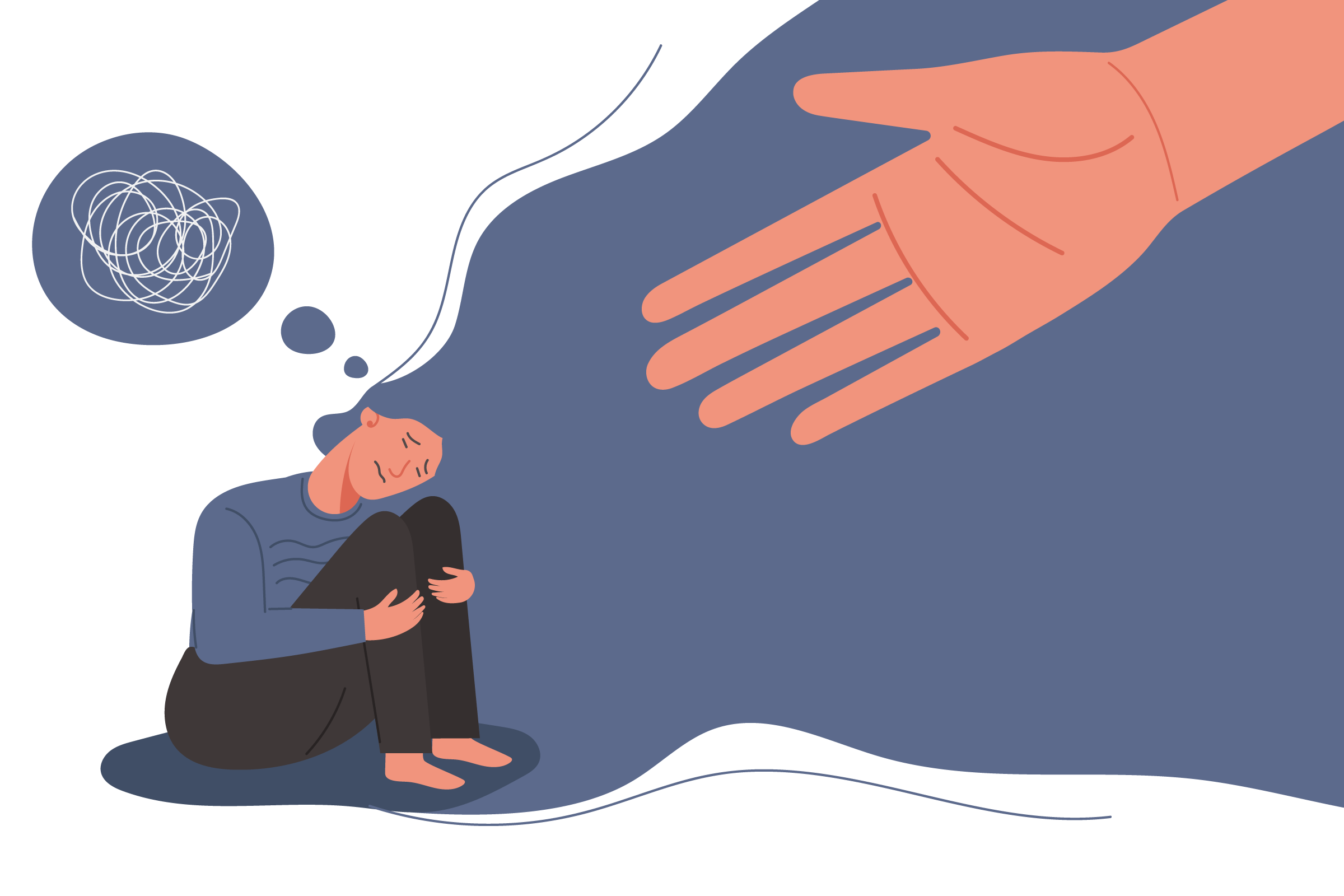When to see a doctor
Unfortunately, many people with anorexia don't want treatment, at least initially. Their desire to remain thin overrides concerns about their health. If you have a loved one you're worried about, urge her or him to talk to a doctor.
If you're experiencing any of the problems listed above, or if you think you may have an eating disorder, get help. If you're hiding your anorexia from loved ones, try to find a person you trust to talk to about what's going on.
Causes
The exact cause of anorexia is unknown. As with many diseases, it's probably a combination of biological, psychological and environmental factors.
- Biological: Although it's not yet clear which genes are involved, there may be genetic changes that make some people at higher risk of developing anorexia. Some people may have a genetic tendency toward perfectionism, sensitivity and perseverance — all traits associated with anorexia.
- Psychological: Some people with anorexia may have obsessive-compulsive personality traits that make it easier to stick to strict diets and forgo food despite being hungry. They may have an extreme drive for perfectionism, which causes them to think they're never thin enough. And they may have high levels of anxiety and engage in restrictive eating to reduce it.
- Environmental: Modern Western culture emphasizes thinness. Success and worth are often equated with being thin. Peer pressure may help fuel the desire to be thin, particularly among young girls.
Risk factors
Anorexia is more common in girls and women. However, boys and men have increasingly developed eating disorders, possibly related to growing social pressures.
Anorexia is also more common among teenagers. Still, people of any age can develop this eating disorder, though it's rare in those over 40. Teens may be more at risk because of all the changes their bodies go through during puberty. They may also face increased peer pressure and be more sensitive to criticism or even casual comments about weight or body shape.
- Genetics: Changes in specific genes may put certain people at higher risk of anorexia. Those with a first-degree relative — a parent, sibling or child — who had the disorder have a much higher risk of anorexia.
- Dieting and starvation: Dieting is a risk factor for developing an eating disorder. There is strong evidence that many of the symptoms of anorexia are actually symptoms of starvation. Starvation affects the brain and influences mood changes, rigidity in thinking, anxiety and reduction in appetite. Starvation and weight loss may change the way the brain works in vulnerable individuals, which may perpetuate restrictive eating behaviors and make it difficult to return to normal eating habits.
- Transitions: Whether it's a new school, home or job; a relationship breakup; or the death or illness of a loved one, change can bring emotional stress and increase the risk of anorexia.
Complications
Anorexia can have numerous complications. At its most severe, it can be fatal. Death may occur suddenly — even when someone is not severely underweight. This may result from abnormal heart rhythms (arrhythmias) or an imbalance of electrolytes — minerals such as sodium, potassium and calcium that maintain the balance of fluids in your body.
Other complications of anorexia include:
- Anemia
- Heart problems, such as mitral valve prolapse, abnormal heart rhythms or heart failure
- Bone loss (osteoporosis), increasing the risk of fractures
- Loss of muscle
- In females, absence of a period
- In males, decreased testosterone
- Gastrointestinal problems, such as constipation, bloating or nausea
- Electrolyte abnormalities, such as low blood potassium, sodium and chloride
- Kidney problems
If a person with anorexia becomes severely malnourished, every organ in the body can be damaged, including the brain, heart and kidneys. This damage may not be fully reversible, even when the anorexia is under control.
In addition to the host of physical complications, people with anorexia also commonly have other mental health disorders as well. They may include:
- Depression, anxiety and other mood disorders
- Personality disorders
- Obsessive-compulsive disorders
- Alcohol and substance misuse
- Self-injury, suicidal thoughts or suicide attempts
Prevention
There's no guaranteed way to prevent anorexia nervosa. Primary care physicians (pediatricians, family physicians and internists) may be in a good position to identify early indicators of anorexia and prevent the development of full-blown illness. For instance, they can ask questions about eating habits and satisfaction with appearance during routine medical appointments.
If you notice that a family member or friend has low self-esteem, severe dieting habits and dissatisfaction with appearance, consider talking to him or her about these issues. Although you may not be able to prevent an eating disorder from developing, you can talk about healthier behavior or treatment options.
